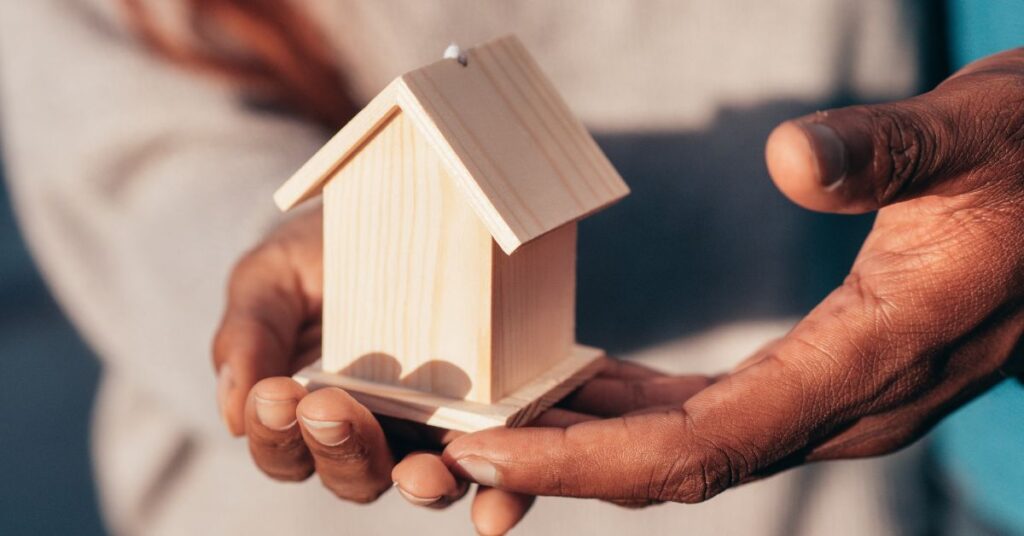Get Expert Financing
- Matched with investor-friendly lenders
- Fast pre-approvals-no W2s required
- Financing options fro rentals, BRRRR, STRs
- Scale your portfolio with confidence
You’ve just started house hunting and you’ve found the perfect house.
It’s new construction, a ranch-style just like you wanted, and has a yard for your dog.
The trade-off? It adds about 30 minutes to your current commute to work.
When these dilemmas happen, you have to think through what is most important to you. You could get lucky and find the perfect home in your desired location, but oftentimes, prospective homebuyers face a choice.
The two primary considerations when buying a home are the house itself, and the area where it’s located. Which is more important?
It’s ultimately your choice. There are a few considerations you might not initially think of that could help you make your decision between buying for the house or buying for the location.
Let’s take a look at the various components of each consideration, and then decide which is more important. But first, let’s answer the question everyone wants to know.
The location of a home is important because it’s the one thing you can’t change.
You can knock down a wall, add a bedroom, and remodel the kitchen, but you can’t pick up and move the house.
Yes, updating the house can get spendy – somewhere between $20,000 and $100,000 according to HomeGuide – but consider the cost of moving.
It costs around 10% of the home’s value to sell it according to Rocket Homes, including agent commissions, local taxes, title costs, and more. That’s $30,000 on a $300,000 home. Then, there are mortgage closing costs on the new home, moving expenses, home repairs on the new home, and the list goes on.
Often, it’s cheaper (and way more convenient) to update a home in a good location than to move later.
When house hunting, most people look for the right home.
After all, it’s where your life will be centered, and it has to be a good fit. While some things can be modified, other renovations could be time-consuming and costly.
Let’s look at a few of the most important things to consider for your house.
Any house that you buy has to have the necessary space that you will need to live comfortably. And if you have a young family, or plan to, you will need to have plenty of growing room available.
It isn’t just the square footage of the home either. You may also determine that you need to have a basement, for added living space later on, or even plenty of room in the attic for long-term storage.
This consideration is often more important than the size of the house. You may need a certain number of bedrooms, bathrooms, or even garage space. If you do a significant amount of work from home, you’ll also need a dedicated office.
The flow of the property can also be important. For example, if you like to entertain, you’ll be interested in a home that has an open floor plan.
You might be planning for guests staying, and need to set up for those needing special accommodations. Consider if the layout has space and features to meet their needs.
This is a more important consideration than people often think.
Low-quality construction can be an indication that you’ll have to put a substantial amount of time and money into the home in the future. In that regard, a well-constructed home can save you time and money in the long run.
It’s not a good idea to look past quality issues and assume you’ll simply replace any defects later.
As a new homeowner, extensive repairs or renovations may be the last thing you’ll want to deal with.
Ask yourself if a home that also comes with a lot of repairs is really worth the location. It’s this reason that homebuyers often request a new construction home, as opposed to looking for something existing with outdated construction.
This can be a really important consideration if you have big plans for the yard. For example, if you like to entertain, need a play area for your children or a dog, want to install a swimming pool or garden, a large backyard will be important.
Still another consideration is the distance from neighbors. If you like your life quieter, you want property with wide buffers between the neighbors’ homes.
Similarly, make sure to find out if the home has a homeowner’s association that you would have to deal with. These organizations sometimes don’t allow things like privacy fences or other structures — even if it’s your own backyard.
This is a consideration that is impossible to describe, other than to say you’ll know it when you feel it.
You will know that the house is the right one for you and your family when it simply feels right. Perhaps more than anything, that means that you can see your family living in the home, and growing into it over time.
You might pass over a home that is perfect in virtually every objective way, in favor of that one place that feels better. It’s perfectly acceptable to trust your instinct, even if nobody else understands your decisions.
This will be important if you plan to modify the home, or if you have needs for the property beyond simply just a place to live.
For example, if you operate a certain type of business out of your home, is the property right for it? This will depend largely upon local zoning ordinances, but the property will also have to be consistent with that use.
See if you’re eligible to buy a house.
The location of the property will affect everything in your life outside of the house itself. That will include your occupation, your social activities, and your recreational activities.
And unlike a home’s siding, paint color, lack of a garage, or other features, you can’t change the location of your home once you’re in it.
Let’s look at the things you should think about when you’re considering the location of your home.
You’ve probably heard this one before — it’s location, location, location. This is a concept advocated by most real estate experts.
Yes, it’s a bit over-the-top, but the point is well taken. The location of a property is generally the single most important consideration.
Without even considering nearby amenities, the location of your home can have major implications for the future value of the home. Some neighborhoods and communities simply appreciate faster than others.
At some point, you may want to sell your home and will want to be in a location where the property values aren’t stalling or dropping so that you can get the most out of it that you can.
Most homebuyers consider this factor primarily in regards to how long it will take them to commute to their current job.
But considering that you might not be at your current job for the rest of your life, you should also give careful consideration to proximity to other employment centers.
If you move to a location simply because it’s close to your current job — but not any potential replacement jobs — you could be setting yourself up to make a forced move to follow a new job in the future.
This is all about convenience.
The distance from shopping, banking, restaurants, doctors, and other services will have a major impact on how much time you spend in your car.
Do you want a location where primary services are within say, one mile, or are you okay driving 10 miles to get to wherever you need to go?
It’s also understandable if you want to live near exciting amenities like movie theaters, gyms, and other sources of entertainment. You don’t want to move somewhere, especially with kids, and be stuck without anything close by to do.
This can also include spiritual or cultural centers. If being near a place of worship is important to you and your family, a close location may be necessary.
The primary concern is, of course, getting the best education for your children. But even if you don’t have any children, the quality of the local school district has a major impact on the resale value of your home.
Properties that are located in desirable school districts tend to hold their value better than those that are in less desirable districts.
While you can customize your home to fit your own personal preferences, you will generally have little impact on the community around you. This is why it’s so important to choose a community that you will be proud to live in.
For example, do you want an older community with established traditions or an up-and-coming hip spot? Do you want to live in a community that has a lot of public activities, or do you mostly keep to yourself? Is the community’s culture something that you would like to live in?
The community that the house is located in is a given, and your only chance to affect where that will be will happen when you first purchase the home.
The bottom line is to make sure that the community you choose is one that you can see yourself being happy in for at least the near future.
With all of this in mind, which is more important to you — the house or location?
In a perfect world, you will find the perfect house in the perfect location. But since this isn’t a perfect world, you will most likely have to choose one over the other.
Both are important, but location should be the first consideration. The home itself can usually be modified to match your personal preferences, at least to some degree.
But the location of the property can never change. Whatever is taking place in the community that the home is located in has already been determined, and is less likely to change.
The best strategy is to find the right location and then to find the right house in that location. But find the right house in the wrong location, and you’ll probably be moving in just a few short years.
Check your homebuying eligibility. Start here.
Our advice is based on experience in the mortgage industry and we are dedicated to helping you achieve your goal of owning a home. We may receive compensation from partner banks when you view mortgage rates listed on our website.

